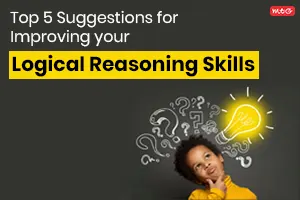
In today’s digital age, social media has become an integral part of our daily lives. We use platforms like Facebook, Instagram, Twitter, and Snapchat to connect with friends, share our thoughts and experiences, and stay updated on the latest news and trends. While social media has its benefits, such as helping us stay connected with loved ones and providing a platform for self-expression, it also has a dark side that can have a negative impact on our mental health and increase stress levels.
One of the main ways that social media can affect our mental health is through comparison. When we scroll through our feeds and see our friends and acquaintances posting about their seemingly perfect lives, it’s easy to feel inadequate and envious. Studies have shown that spending too much time on social media can increase feelings of loneliness and social isolation, as we compare ourselves to others and feel like we don’t measure up.
Recent – Say Goodbye to Stress with 5 Simple Stress Management Techniques!
Additionally, social media can also contribute to feelings of FOMO (fear of missing out). When we see our friends posting about their exciting social lives and adventures, it’s easy to feel like we are missing out on all the fun. This can lead to feelings of inadequacy and anxiety, as we feel like we are not living up to the standards set by others on social media.
Warning Signs
- Increased Feelings of Inadequacy: One of the most common warning signs of the negative impact of social media on mental health is an increase in feelings of inadequacy. As we scroll through our feeds and see our friends and acquaintances posting about their seemingly perfect lives, it’s easy to fall into the trap of comparison. This can lead to low self-esteem, depression, and anxiety.
- Persistent Anxiety or Depression: If you find yourself experiencing persistent feelings of anxiety, depression, or sadness after using social media, it may be a sign that your mental health is being negatively impacted. Pay attention to these emotions and seek support if needed.
- Difficulty Disconnecting: Another warning sign to watch out for is difficulty disconnecting from social media. If you constantly feel the need to check your notifications and updates, it may be a sign that you are becoming too dependent on social media for validation and connection.
- Increased Stress and Overwhelm: The constant stream of information and notifications on social media can lead to feelings of stress and overwhelm. If you find yourself feeling overwhelmed by the demands of social media, it may be time to reevaluate your usage.
- Changes in Sleep Patterns or Mood: Changes in sleep patterns, such as difficulty falling asleep or staying asleep, as well as changes in mood, such as irritability or mood swings, can be warning signs that social media is impacting your mental health.

Also Check – How to recognize and address signs of burnout in students?
So, how can we overcome the negative impact of social media on our mental health and stress levels? Here are a few tips to help you navigate the digital world in a healthier way:
- Limit your screen time: Set boundaries for how much time you spend on social media each day. Try to limit your usage to a certain amount of time, and make sure to take breaks and disconnect regularly.
- Practice mindfulness: Take time to be present and mindful in the moment. Put your phone away and focus on the people and activities around you. Engage in activities that bring you joy and fulfilment, and try to be fully present in the moment.
- Unfollow accounts that make you feel bad: If you find yourself constantly comparing yourself to others on social media, it may be helpful to unfollow accounts that trigger negative emotions. Surround yourself with positive and uplifting content that makes you feel good about yourself.
- Seek support: If you are struggling with feelings of depression, anxiety, or low self-esteem, it’s important to seek support from a therapist or counselor. Talking to a professional can help you navigate your emotions and develop healthy coping strategies.
- Take a social media detox: Consider taking a break from social media altogether. Disconnecting for a period of time can help you reset and recharge, and give you a chance to focus on your mental well-being without the distractions of social media.

You will also like – The Importance of 8 Hours of Sleep: A Game-changer for Students’ Stress Management
Conclusion
In conclusion, while social media has its benefits, it’s important to be mindful of its potential negative impact on our mental health and stress levels. By setting boundaries, practicing mindfulness, seeking support, and taking breaks when needed, we can navigate the digital world in a healthier and more balanced way. Remember, your mental health is important, so prioritize self-care and make choices that support your well-being.






























